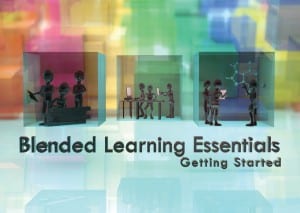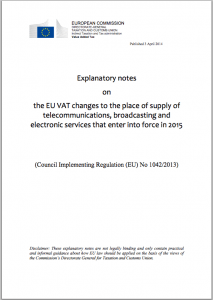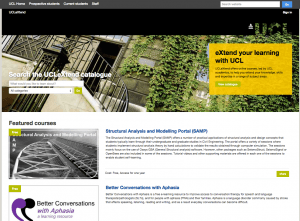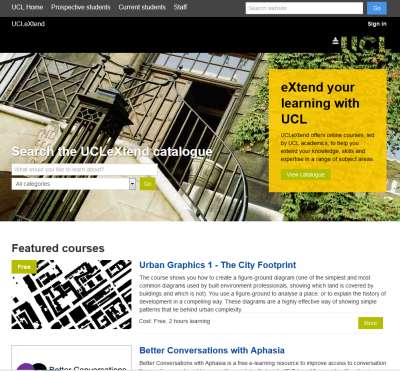Develop your digital skills this term – new dates released for Autumn 2022
By Louise Pollock, on 26 September 2022
How to book
- For staff on payroll and those who have previously booked on MyLearning:
Book via MyLearning - Everyone else:
Book via UCL Learning pages (students and non-payroll staff who haven’t previously booked on MyLearning)
As a reminder, please note that most of our events are interactive training sessions and are not recorded. Therefore, we ask that you please ensure you are able to attend before booking and cancel your place if you are no longer able to attend. If you have any accessibility requirements, please let us know by emailing the ISD Digital Skills Development mailbox in advance: isd-digiskills@ucl.ac.uk
Please ensure you are using Desktop@UCL or the UCL VPN when booking.
Prizes to be won!
We have new monthly term-time prizes to be won by staff and students who attend and evaluate our courses. All you have to do to be in the running to win £20 ‘Love to Shop’ Gift Voucher is complete one of our training sessions, and submit our course evaluation form. The evaluation form should take no more than 1 minute to complete. Good luck!
Find out more
For more information on how to book and join a session on the day, please visit our Practical Course Information page.
Drop-ins
We are also hosting our usual weekly drop-in sessions remotely and face-to-face for those who would like individual support on a specific issue. The dates and times of the sessions, along with the joining link, are available in our ISD Digital Skills Development Moodle course.
More digital skills development opportunities…
Learn online with a vast range of high-quality video-based courses from LinkedIn Learning. These cover technical skills but also business, personal and creative skills as well. Visit the UCL LinkedIn Learning page to find out more.
DigiLearn Online is a library of online videos which covers UCL IT essentials. Topics include remote connectivity, data storage essentials, Microsoft Office 365 applications, and much more. Visit the DigiLearn Online webpage to access the video guides.
Latest schedule
| Start Date | Start Time | End Time | Session Title | Venue |
| 11/10/2022 | 14:00 | 15:00 | DSD: An Introduction to R with Rstudio – Part 1 (Remote classroom) | This session will take place via an online teaching platform |
| 11/10/2022 | 10:00 | 11:15 | DSD: Microsoft Teams Introduction (Prerequisite Course for Advanced Workshops) | This session will take place via an online teaching platform |
| 11/10/2022 | 10:00 | 11:00 | DSD: Mentimeter for Continuous Module Dialogue (CMD) | This session will take place via an online teaching platform |
| 12/10/2022 | 10:00 | 11:00 | DSD: Pivot tables in Excel – Demo | This session will take place via an online teaching platform |
| 12/10/2022 | 15:00 | 16:00 | DSD: Inspiration: Mind mapping tool – an overview demo | This session will take place via an online teaching platform |
| 13/10/2022 | 14:00 | 16:00 | DSD: Software for success: Data analysis & statistical tools | This session will take place via an online teaching platform |
| 13/10/2022 | 10:00 | 11:00 | DSD: Word tips and tricks | This session will take place via an online teaching platform |
| 14/10/2022 | 10:00 | 11:00 | DSD: Getting Started with Stata – Part 1 (Orientation and materials) | This session will take place via an online teaching platform |
| 18/10/2022 | 14:00 | 16:00 | DSD: An Introduction to R with Rstudio – Part 2 (Remote classroom) | This session will take place via an online teaching platform |
| 18/10/2022 | 14:00 | 15:30 | DSD: Microsoft Teams Workshop 1: Beyond Basics Overview | This session will take place via an online teaching platform |
| 18/10/2022 | 10:00 | 11:00 | DSD: Planning a short film | This session will take place via an online teaching platform |
| 19/10/2022 | 10:00 | 11:30 | DSD: Creating accessible PowerPoint presentations | This session will take place via an online teaching platform |
| 19/10/2022 | 14:00 | 15:00 | DSD: Excel tips and tricks | This session will take place via an online teaching platform |
| 19/10/2022 | TBC | TBC | DSD: Excel Essential Skills – WORKSHOP 1 | Campus-Based |
| 25/10/2022 | 10:00 | 11:00 | DSD: Filming advice for a short film | This session will take place via an online teaching platform |
| 20/10/2022 | 10:00 | 11:30 | DSD: VLookup in Excel – workshop | This session will take place via an online teaching platform |
| 21/10/2022 | 10:00 | 12:00 | DSD: Getting Started with Stata – Part 2 (Using Stata) | This session will take place via an online teaching platform |
| 25/10/2022 | 10:00 | 11:45 | DSD: Pivot Tables in Excel – Workshop | This session will take place via an online teaching platform |
| 25/10/2022 | 14:00 | 16:00 | DSD: An Introduction to R with Rstudio – Part 3 (Remote classroom) | This session will take place via an online teaching platform |
| 25/10/2022 | 12:00 | 13:00 | DSD: Inspiration: Mind mapping tool – an overview demo | This session will take place via an online teaching platform |
| 26/10/2022 | 15:00 | 16:00 | DSD: How to look after your health at the computer | This session will take place via an online teaching platform |
| 26/10/2022 | 12:00 | 13:00 | DSD: Software for Success: Winning with charts | This session will take place via an online teaching platform |
| 26/10/2022 | 10:00 | 11:00 | DSD: Sway, Microsoft’s modern presentation tool – Demo | This session will take place via an online teaching platform |
| 27/10/2022 | 10:00 | 11:30 | DSD: Microsoft Teams Workshop 2: Managing & Participating in Meetings | This session will take place via an online teaching platform |
| 27/10/2022 | 10:00 | 11:00 | DSD: Podcasting made easy | This session will take place via an online teaching platform |
| 28/10/2022 | 10:00 | 12:00 | DSD: Getting Started with Stata – Part 3 (Scripting techniques) | This session will take place via an online teaching platform |
| 01/11/2022 | 14:00 | 16:00 | DSD: An Introduction to R with Rstudio – Part 4 (Remote classroom) | This session will take place via an online teaching platform |
| 01/11/2022 | 14:00 | 15:30 | DSD: XMind mind mapping tool – workshop | This session will take place via an online teaching platform |
| 02/11/2022 | 10:00 | 12:00 | DSD: Software for success: Survey tools | This session will take place via an online teaching platform |
| 02/11/2022 | 10:00 | 11:15 | DSD: Basic image editing using free tools – demo | This session will take place via an online teaching platform |
| 02/11/2022 | 14:00 | 15:30 | DSD: Microsoft Teams Workshop 3: Document Management and Collaboration | This session will take place via an online teaching platform |
| 02/11/2022 | 14:00 | 15:00 | DSD: Excel Essential Skills – WORKSHOP 2 | Campus-Based |
| 03/11/2022 | 11:00 | 12:00 | DSD: Read&Write: Text-to-speech software – an overview | This session will take place via an online teaching platform |
| 03/11/2022 | 10:00 | 11:00 | DSD: LaTeX: Demo of Overleaf | This session will take place via an online teaching platform |
| 03/11/2022 | 14:00 | 15:00 | DSD: Software for success: Writing tools | This session will take place via an online teaching platform |
| 03/11/2022 | 10:00 | 11:00 | DSD: Best practice for video captions and transcripts | This session will take place via an online teaching platform |
| 04/11/2022 | 10:00 | 12:00 | DSD: Getting Started with Stata – Part 4 (Modelling and reporting) | This session will take place via an online teaching platform |
| 08/11/2022 | 12:00 | 13:00 | DSD: Introduction to REDCap for research – demo and Q&A | This session will take place via an online teaching platform |
| 08/11/2022 | 10:00 | 17:00 | DSD: Introduction to Matlab | Campus-Based |
| 08/11/2022 | 14:00 | 15:00 | DSD: Creating Infographics using free web-based tools | This session will take place via an online teaching platform |
| 08/11/2022 | 10:00 | 11:00 | DSD: Introduction to stop motion animation | This session will take place via an online teaching platform |
| 09/11/2022 | 12:00 | 13:00 | DSD: Software for success: Working with Bibliography and Citation Apps | This session will take place via an online teaching platform |
| 09/11/2022 | 10:00 | 11:45 | DSD: OneNote – Workshop | This session will take place via an online teaching platform |
| 10/11/2022 | 10:00 | 17:00 | DSD: Introduction to Matlab | Campus-Based |
| 10/11/2022 | 10:00 | 11:30 | DSD: Sway, Microsoft’s modern presentation tool – Workshop | This session will take place via an online teaching platform |
| 10/11/2022 | 10:00 | 11:00 | DSD: Record a narration over your PowerPoint on a PC | This session will take place via an online teaching platform |
| 11/11/2022 | 10:00 | 17:00 | DSD: Getting Started with Stata – (Campus based) | Campus-Based |
| 15/11/2022 | 14:00 | 16:00 | DSD: Data Visualization in R with ggplot2 | This session will take place via an online teaching platform |
| 15/11/2022 | 14:00 | 15:30 | DSD: Styles and table of contents in Word – Workshop | This session will take place via an online teaching platform |
| 15/11/2022 | 14:00 | 15:00 | DSD: Explore the potential of UCL Mediacentral | This session will take place via an online teaching platform |
| 16/11/2022 | 17:00 | 20:00 | DSD: An Introduction to R with Rstudio (Campus-based) | Campus-Based |
| 16/11/2022 | 10:00 | 11:00 | DSD: Microsoft Forms Demo | This session will take place via an online teaching platform |
| 16/11/2022 | 14:00 | 15:00 | DSD: Word tips and tricks | This session will take place via an online teaching platform |
| 16/11/2022 | 14:00 | 15:00 | DSD: Excel Essential Skills – WORKSHOP 3 | Campus-Based |
| 17/11/2022 | 14:00 | 16:00 | DSD: Getting Started with SPSS | This session will take place via an online teaching platform |
| 17/11/2022 | 10:00 | 11:15 | DSD: Microsoft Teams Introduction (Prerequisite Course for Advanced Workshops) | This session will take place via an online teaching platform |
| 22/11/2022 | 12:00 | 13:00 | DSD: In a Nutshell: Git version control | This session will take place via an online teaching platform |
| 22/11/2022 | 15:00 | 16:00 | DSD: Read&Write: Text-to-speech software – an overview | This session will take place via an online teaching platform |
| 22/11/2022 | 10:00 | 11:30 | DSD: Creating accessible Word documents | This session will take place via an online teaching platform |
| 22/11/2022 | 14:00 | 15:30 | DSD: Getting Started with Markdown | This session will take place via an online teaching platform |
| 22/11/2022 | 10:00 | 11:00 | DSD: Excel tips and tricks | This session will take place via an online teaching platform |
| 22/11/2022 | 14:00 | 15:30 | DSD: OneDrive for sharing files | This session will take place via an online teaching platform |
| 22/11/2022 | 14:00 | 15:00 | DSD: Design an impactful research poster using UCL templates | This session will take place via an online teaching platform |
| 23/11/2022 | 17:00 | 20:00 | DSD: An Introduction to R with Rstudio (Campus-based) | Campus-Based |
| 23/11/2022 | 10:00 | 11:30 | DSD: Microsoft Teams Workshop 1: Beyond Basics Overview | This session will take place via an online teaching platform |
| 24/11/2022 | 12:00 | 13:00 | DSD: PowerPoint for researchers (Windows) | This session will take place via an online teaching platform |
| 24/11/2022 | 14:00 | 16:00 | DSD: Getting Started with SPSS | This session will take place via an online teaching platform |
| 28/11/2022 | 14:00 | 15:45 | DSD: Pivot Tables in Excel – Workshop | This session will take place via an online teaching platform |
| 29/11/2022 | 14:00 | 16:00 | DSD: Intermediate statistics with Excel 2016 | This session will take place via an online teaching platform |
| 29/11/2022 | 14:00 | 15:15 | DSD: Basic image editing using free tools (Demo) | This session will take place via an online teaching platform |
| 30/11/2022 | 14:00 | 16:00 | DSD: Better Tables in R | This session will take place via an online teaching platform |
| 30/11/2022 | 10:00 | 11:30 | DSD: Sway, Microsoft’s modern presentation tool – Workshop | This session will take place via an online teaching platform |
| 01/12/2022 | 10:00 | 11:45 | DSD: Charting with Excel | This session will take place via an online teaching platform |
| 01/12/2022 | 12:00 | 13:00 | DSD: In a Nutshell: Excel functions we should all know | This session will take place via an online teaching platform |
| 01/12/2022 | 14:00 | 16:00 | DSD: Format your Thesis (Windows) | This session will take place via an online teaching platform |
| 02/12/2022 | 14:00 | 17:00 | DSD: Scripting Stata’s new Tables and Collections | Campus-Based |
| 06/12/2022 | 10:00 | 11:30 | DSD: Microsoft Teams Workshop 2: Managing & Participating in Meetings | This session will take place via an online teaching platform |
| 06/12/2022 | 14:00 | 15:00 | DSD: Make a short film with your iPhone | This session will take place via an online teaching platform |
| 07/12/2022 | 10:00 | 11:30 | DSD: Photo editing with Pixlr X – Workshop | This session will take place via an online teaching platform |
| 08/12/2022 | 14:00 | 16:00 | DSD: Advanced statistics with Excel 2016 | This session will take place via an online teaching platform |
| 08/12/2022 | 10:00 | 11:30 | DSD: Creating accessible PowerPoint presentations | This session will take place via an online teaching platform |
| 09/12/2022 | 10:00 | 17:00 | DSD: Think like a computer programmer | Campus-Based |
| 13/12/2022 | 14:00 | 15:30 | DSD: Creating accessible Word documents | This session will take place via an online teaching platform |
| 13/12/2022 | 14:00 | 15:30 | DSD: VLookup in Excel – workshop | This session will take place via an online teaching platform |
| 13/12/2022 | 14:00 | 15:00 | DSD: An introduction to free graphic design tools | This session will take place via an online teaching platform |
| 14/12/2022 | 14:00 | 16:00 | DSD: Kick-starting your literature review | Campus-Based |
| 15/12/2022 | 10:00 | 12:00 | DSD: Data Manipulation in R with Rstudio | This session will take place via an online teaching platform |
| 15/12/2022 | 10:00 | 11:30 | DSD: Microsoft Teams Workshop 4: Forms Polling in Channels, Chats and Meetings | This session will take place via an online teaching platform |
| 16/12/2022 | 12:00 | 13:00 | DSD: In a Nutshell: Starting a Nvivo Project | This session will take place via an online teaching platform |
 Close
Close










